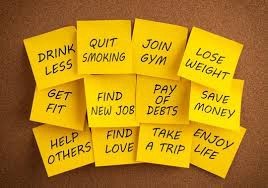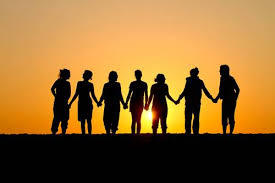Marcia Sirota's Blog, page 31
January 29, 2018
Were the Grammy Awards Just Paying Lip Service to Time’s Up and MeToo?
I was watching the Grammy Awards the other night and becoming increasingly frustrated. With all the talk about “Time’s Up” and “MeToo” and with Kesha’s powerful performance about her own experience with oppression, you’d think that the Grammys had got it right when it comes to supporting women.
But watching the show made it clear to me that they hadn’t gotten it right at all. Actions are more powerful than words and on the Grammy Awards certain actions totally contradicted all the well-intentioned words I kept hearing.
What am I talking about? I call it the “underwear conundrum.” Leaving aside the misogynistic lyrics of some of the songs being performed, my frustration while watching the Grammys centered on the two performances in which women were dressed in outfits either resembling underwear or in actual underwear while singing and dancing alongside fully clothed men.
None of the men on stage were dressed in underwear or anything even close. They wore long pants and shirts layered under jackets and hoodies. I couldn’t focus on Cardi B’s performance with Bruno Mars because the bra top she was wearing was so skimpy that as she danced, I was anticipating a Janet-Jackson-esque wardrobe malfunction.
Watching the Luis Fonsi and Daddy Yankee performance was even more disconcerting. Again, there was the glaring discrepancy between the fully covered male dancers and female dancers who were wearing the skimpiest of shorts and tops.
The performance got worse for me when a woman wearing nothing more than a G-string, pasties and a few strategically-placed bits of fringe came on to dance with the two male singers. The blatancy of her objectification was extremely offensive to me.
People are going to say that I’m a prude, but they don’t know me. My problem isn’t with the showing of body parts; it’s with what it means to present fully-dressed males and scantily-clad females side-by-side on stage. It’s demeaning to the women and totally sexist.
Let’s talk about underwear. It’s called that because it goes under our clothes. We wear it at home when we’re getting dressed or undressed, or when we’re changing at the gym. We also wear it in intimate situations, like when we’re about to make love.
When producers dress performers in clothing that resembles underwear, there’s only one reason: to bring the viewers’ thoughts to sex. But by only having females presented in their underwear, it’s clear that it’s male viewers that the producers are pandering to; it’s their lust and their fantasies that are supposed to be stirred up.
As is usual in our media, men are the subjects doing the desiring and women are portrayed as the objects of their desire. The male gaze is the only important one here and the sexualized female body is what’s being gazed upon.
It’s not just at the Grammys. Magazines are notorious for this. The brilliant comedian Kate McKinnon was on the cover of a magazine recently, wearing only underwear. I was astounded. She’s a brilliant satirist. I can’t fathom one reason why she should be photographed in a camisole and tap pants.
McKinnon is only one of a multitude of women who’ve posed in various states of undress on the covers of magazines while the men who appear on these covers are on virtually every occasion fully clothed.
A few summers ago, the breakout musical hit was Robin Thicke’s “Blurred Lines.” Again, putting aside the misogynistic lyrics which seemed to glorify non-consensual sex, the women dancing in the video were scantily-clad in one version and semi-naked in another. And again, all the men were fully dressed. As usual, the message was clear. Women are sex objects; here to be desired and consumed by men.
So here’s the conundrum: How can we say that “Time’s Up” on discriminatory and abusive practices toward women while at the same time turning a blind eye to the constant sexualization of women on stage, screen and in print? How can we take this new movement seriously while ignoring such a blatant double standard?
I’d rather see no-one in the public domain parading around in their underwear, as I’m opposed to any sort of objectification, but if no-one will go for that then at least, let’s level the playing field. Either everyone is out and about in their skivvies or no-one is.
Either Bruno Mars performs wearing only his tighty-whities while Cardi B dances around him in her tiny shorts; either Louis Fonsi and Daddy Yankee and their male dancers are in only their bikini briefs while surrounded by semi-naked women, or everyone is fully clothed.
If we must have the anachronism that is the Victoria’s Secret pageant, then let’s have all the male performers in the same state of undress as all the female models and performers who appear on the show.
Enough of this double standard. Enough of this BS. It’s hypocritical to say “Time’s Up” on the harassment and unfair treatment of women while saying nothing about the semi-naked women appearing alongside fully-dressed men, everywhere in the media.
Until we get this right (and then maybe afterward, we can examine the misogynistic lyrics on many of today’s songs and the absurdly sexist plots of many of today’s film and TV scripts), we’re not moving forward. We’re presenting a mixed message that only serves to neutralize the argument for women’s rights.
One side of the message says, “Women are equal citizens, deserving of the same rights, freedoms and opportunities,” and the opposite side says, “Women are sex objects, presented for the benefit of male fantasies and for male sexual consumption.”
Without a consistent message that supports women as fully-fledged human beings; without a single standard of how men and women are represented in the media, we’re all just paying lip service to some catchy slogans. I truly hope that this changes, and soon.
Sign up here for my free monthly wellness newsletter. February 2018 is all about different ways to look at love.
December 26, 2017
The Cure to Holiday Season Loneliness
The holiday season can be full of fun, family and friends but it can also be a lonely time of year. If you aren’t feeling the holiday spirit right now there could be a number of reasons for this.
It could be that your loved ones are far away and you’re unable to spend time with them over the holidays. You might feel bad because you’ve never had a close family or a partner to celebrate with. Maybe you’re estranged from your family of origin. Maybe you’ve never met “the one.”
Because it’s such a people-oriented time of the year, if you find yourself alone this holiday season you’re probably going to feel your loneliness more acutely than at any other time of the year.
Fortunately, there are things you can do, right now, to make this and future holiday seasons brighter for you. First, it’s a good idea to ask yourself if there might be some things you’ve been doing that have resulted in your being so lonely.
Have you isolated yourself and made it harder for people to connect to you? Have you behaved in ways that might have pushed other people away? If you think that either of these might be true, even to some degree, you owe it to yourself to do some self-reflection moving forward, so that you can create more meaningful connections in the coming year.
Have you been hurt because of a painful break-up, separation or divorce? Did you lose one or more loved ones in the past year? Perhaps you’ve withdrawn into yourself out of grief or from the fear of getting close to someone again and once again, losing them.
You need to see that it’s time to take the chance to connect with people again. Even if you feel raw and vulnerable; even if you’re afraid of going through another painful loss, the benefits of having more love in your life will always outweigh the risks.
Sometimes, people become lonely because they’re filled with anger, bitterness or hate. You hold on to a grudge and the resentment seethes within you. You feel wronged or betrayed and you can’t let go of your righteous indignation. You stew and you stew, going over the hurts that other people caused you and without realizing it, you give out a vibe that makes the people around you uncomfortable.
Most people don’t want to be around someone who’s filled with negative emotions. It’s unpleasant and stressful, and others fear that you might turn these emotions against them. It’s a big social turn-off to be an angry, indignant person so if you’re feeling lonely these days you need to take some time to look at your anger and let it go. Otherwise, it will be very difficult to create new social connections.
Another thing that people consider a social no-no is complaining. If you’ve had a tendency to complain about your family, your romantic partner, your job or your health and lately you’ve been feeling lonely, it might be that people are avoiding you because they don’t enjoy the complaining. If you want to create close bonds with others, you need to see how off-putting this behavior is and stop it now.
If you’re feeling isolated because of your situation; for example, you work from home or you’re in a small office working with the same group of colleagues for years, or you’re the odd-man out due to your values, religion or lifestyle choices, you need to get out there in order to meet new, like-minded people.
A good way of meeting new people is to follow your passions and start an on-going activity where you see the same group of like-minded people over an extended period of time. It could be French lessons, ballroom dancing, painting, hiking, biking, volleyball or writing.
When you spend time with a group of people who share your passions and you see them week after week, the likelihood of making one or more new social connections is high.
Another way to connect with new people is to do volunteer work at the local food bank, soup kitchen, gardening co-op or community organization. These individuals already care deeply about others so once you’re among them, sharing their goals and ideals, it’ll be easy for you to connect.
Of course, being a kind, considerate person is a great way to attract people to you, but you need to know the difference between being genuinely kind and being a too-nice people-pleaser.
The genuinely kind person has good self-esteem so they’re caring toward others but never at their own expense. They’re thoughtful and considerate but they don’t over-extend themselves and they don’t tolerate disrespect.
The too-nice people-pleaser is insecure and doing too much for others in the hopes of gaining acceptance and approval. Whereas the kind person tends to be admired and respected, the too-nice person is usually taken advantage of and disrespected by others.
If you want to create new friendships, it’s important that you understand this distinction and work on building your self-esteem so that you can become kind, rather than overly nice.
Loneliness over the holiday season is extremely painful. Everyone needs close, supportive people in their lives and everyone deserves love and connection. If you find yourself lonely this holiday season, there are things you can do right now to improve your situation and make this holiday season and the years to come better than they’ve ever been.
Sign up here for my free monthly wellness newsletter. January 2018 is about starting the year off right.
December 25, 2017
How to Keep Your New Year’s Resolutions
We all do it: We make our New Year’s resolutions and mean to keep them but half-way through January we’ve already broken almost every one. For example, we’ve vowed to go off sugar but suddenly we find ourselves biting into a jelly doughnut.
Or, we’ve pledged to quit smoking and yet here we are on January 5th, lighting up a cigarette. Or, we’ve resolved to be more responsible with money, but somehow find ourselves at the mall one week after New Year’s, purchasing another unneeded item.
Are we so weak and helpless in the face of our bad habits? Do we have no will-power? Is it impossible for us to keep any of our New Year’s resolutions?

The answer to all of these questions is no. We can become more empowered with regard to our bad habits if we understand what’s actually driving these behaviours. We can keep our New Year’s resolutions if we shift from “shoulds” to wants, and we can access our will-power when we understand how to use it.
A major problem with our New Year’s resolutions is that they’re impositions. We tell ourselves that we “should” make these changes and then wonder why we can’t stick to our plans.
No-one likes to be forced into doing things. There’s a big difference between making the changes that we really want and trying to do what we think we “should” do. When “shoulds” are at the root of our choices, it’s very common to experience resistance.
If we want our changes to stick, we need to tune in to our authentic wants and have our resolutions spring from these. For example, maybe the reason we’ve decided to give up sugar is that there’s a history of diabetes in our family and we want to be more proactive about our health.
Maybe we decided to give up smoking because we watched a relative suffer from a smoking-related lunch disease and the last thing we want is to go through what they did.
Maybe the reason behind our resolution to spend more wisely is that someone we know had to declare bankruptcy due to excessive spending and we don’t want to follow in their footsteps.
If we connect to our real wants, we might end up making identical resolutions, but they’ll be coming from a very different place and we won’t have to force ourselves to keep them.

Another thing we need to understand is that all of our bad habits arise out of an unconscious belief that they’ll meet our deep inner needs. Whether we’re engaging in overeating, drinking alcohol, abusing drugs, gambling or over-spending, what we’re actually doing is pursuing external solutions to our internal needs.
Hurtful or traumatic childhood experiences have left us with emotional wounds and unmet emotional needs. Today, within our psyche, we long to heal these wounds and meet these needs but we don’t know how to do this for ourselves. Often, we see our bad habits as our only possible source of soothing and nurturing.
Each one of our bad habits provide us with some degree of numbing, distraction or stimulation that feels kind of like soothing or nurturing, but it’s all a false fix. No amount of sugar, alcohol, spending or gambling can do the trick. What we actually need is self-nurturing and self-soothing.
When we affirm ourselves through positive affirmations and when we practice self-healing and self-compassion, the urge to engage in our bad habits diminishes and it becomes easier to keep our resolutions.
We don’t have to be helpless in the face of our bad habits if we become empowered by recognizing the truth about them. We can see that these behaviours will never meet our real needs.
If we take responsibility for giving ourselves the soothing and nurturing we need (whether on our own or by finding a counselor or therapist to help us), keeping our New Year’s resolutions will be a breeze.

Knowing all of the above, you can feel confident in making your New Year’s resolutions for 2018, knowing that the likelihood of keeping them will be the highest it’s ever been.
Sign up here for my free monthly wellness newsletter. January 2018 is about starting the year off right.
December 5, 2017
The Real Reason and Cure For Addiction
We’ve been going about the treatment of addiction in the wrong way. Rather than a behavioural approach, we need to look at the true cause of addiction in order to find a viable cure.
The fact is, all addictions are caused by the same thing and therefore can be healed in the same way. First and foremost, addiction is not a disease. It’s not a case of genetic predisposition or “faulty wiring” in the brain. In fact, it’s a response to painful things that happened during childhood.
Although the disease model of addiction has been in favor for some time, it has proven ineffective in truly making sense of addiction and more importantly, in treating it. The programs which make use of this model see very poor results, with people repeatedly “falling off the wagon.”
It’s convenient to blame this treatment failure on the intractability of the addict’s disease but I see it quite differently. Treatment failure is really due to an inaccurate conceptualization of addiction and ineffective treatment methodology.
Addictions are due to trauma experienced during childhood, and sometimes even later in life. They’re a person’s way of dealing with unmet emotional needs and unresolved emotional pain.
Whether you were abused or neglected while growing up; whether you witnessed abuse, incurred the loss of a loved one or experienced a traumatic illness or accident, these events caused you to have emotional wounds and they left you with inner pain and unmet emotional needs for nurturing and healing.
If you have emotional wounds, you’ll be driven to find emotional healing and meet your emotional needs. You’ll unconsciously seek solutions that soothe, numb, distract or stimulate you; what I call the “false solutions” of addiction. The addict compulsively pursues the behavior in the erroneous belief that eventually, it will give them what they need.
This isn’t a thought-out decision, but an unconscious choice driven by the wounded “child within” which persists as the needy, illogical, impulsive part of your psyche, seeking healing and compensation for the pain and losses of the past.
This child part of the psyche is convinced that the addiction is the solution to their problems, and is compelled to repeat the addictive behavior in the false hope that this behaviour will eventually pay off.
The addictive behavior gives partial gratification, in that there’s a momentary sense of pleasure, distraction or relief from your suffering, and this encourages you to stick with it, waiting for it finally to do the trick. When it doesn’t, you can’t give up the behaviour because the child within you carries a powerful hope that it will eventually pay off is too strong.
This false hope is what gets you caught up in doing more and more eating, smoking, drinking, drugging, shopping or gambling, because you think, deep down, that if a little bit of addictive behaviour gave you some temporary relief, maybe a lot will give you permanent relief. It won’t, because addiction is the wrong solution for your problem.
The real solution is addressing your hurts and their needs; healing the emotional wounds and giving yourself the love, soothing and nurturing you’ve been lacking. Only this will take away your pain and most importantly, take away the cravings to indulge in the addiction.
The reason why people constantly fail at rehab is that they’re told to abstain from the addictive behaviour or substance without being given a viable solution for their unmet needs and wounded feelings. Unless they can substitute a real solution for the false solution of addiction, the person is doomed to be forever fighting off their cravings.
“One day at a time” doesn’t have to be your fate. You can eliminate the cravings forever by finally dealing with the emotional wounds and unmet needs you’ve been unconsciously trying to fix through addiction.
It’s not your fault if your previous attempts at rehab failed. They weren’t giving you the right treatment.
It should be clear from all of the above why addictions are interchangeable. They’re all just different ways to deal with the same problem. So, an addict can switch addictions or can simultaneously have more than one addiction.
Multiple addictions can arise as you search in vain for the answer to your emotional needs. If alcohol isn’t sufficiently effective, for example, you could add compulsive eating or drugs to the mix.
Addiction transfer happens when the person voluntarily gives up one addiction and then inadvertently picks up another. An example would be if you joined a 12-step program and quit alcohol and/or drugs but then began shopping compulsively, or if you had stomach stapling surgery for overeating and then became a compulsive gambler and/or drinker.
People also transfer addictions when they’ve been forced to let go of one; for example, if you’ve been put into a court-mandated drug program, or if you’ve hurt your back and can no longer work out compulsively.
I’ve developed a treatment for all addictions that’s a simple four-pronged approach which addresses the childhood wounds and will enable you to replace the addictive behavior with what you really need.
1: You have to first, face the truth about your past and see how the hurts and losses that you’ve experienced have left you with emotional wounds;
2: You must grieve your hurts and losses over time and eventually let go of all your pain;
3: You must put the past behind you once and for all, so that you’re no longer compelled to keep trying to fix it in the present;
4: You must go after the things that will bring you real self-nurturing and real fulfillment today. These things include good self-care, loving relationships, meaningful work and fulfilling pastimes.
By recognizing the true cause of you addictions and by adopting the four-pronged approach, you and every addict can work toward being fully recovered, as opposed to being forever “in recovery.”
In my book, “Emotional Overeating: Know the Triggers, Heal Your Mind and Never Diet Again, I go into greater detail about food addiction, as well as all other addictions.
Sign up here for my free monthly newsletter. January 2018 is all about setting conscious, empowered intentions for the new year.
December 4, 2017
Can You Be More Mindful Over the Holidays?
As the holiday season approaches, I think we can all agree that it’s been a rough year. President Trump appears determined to destroy everything we hold dear and it seems like every other day, another few names are added to the growing list of celebrity sex offenders.
The environment is in critical shape and people are more disconnected than ever, leading to blatant and awful examples of rude and selfish behavior. Happy holidays, indeed!
So here we are, nearing the end of 2017 and for some of us, the winter blues have already begun. We’re feeling listless and uninspired. The news is bad and we fear that it might be getting worse. How do we make it through the holidays and even more importantly, how do we move forward into 2018 in the best possible frame of mind?
I think that there are a few things we can do to make the holidays brighter and the new year better. It all starts with being more mindful.
So much of the time, we’re running around in a state of agitation and distractedness. We lose our keys, forget to lock the front door, bang our head on an open cabinet, go on auto-pilot while driving and miss our turn-off. We walk right past people without really seeing them and miss out on the possibility of a connection.
Being more mindful means slowing down and breathing. It means being present in each moment of your life. If you’re driving, you’re paying attention to the road and alert for any potential accidents or detours.
If you’re getting ready for work, you’re going slow and paying attention to what you’re doing. While at work, you focus on one task at a time to reduce the potential for mistakes.
When you’re out and about, you notice the people around you. You take in who’s nice and who’s nasty. In this way, you see who you need to stay away from and who’s a potential friend, ally or love interest.
The holidays, especially, can up our stress levels. We feel our loneliness more acutely, and any family problems we have are magnified. Financial difficulties loom larger and we tend to take stock of our lives with a more critical eye as New Year’s eve approaches.
The holidays are a time when we can get caught up in over-indulging with the intention to self-soothe. There’s such an abundance of tasty food and tempting drink wherever we turn that it’s easy to have that third or fourth helping of stuffing or that fifth or sixth drink.
We rationalize our behavior by saying, “It’s the holidays!” but there’s a significant difference between celebrating and getting caught up in addiction.
Being mindful of your feelings can help with all of this. If you’re lonely, it’s a good time to volunteer at a local food bank or soup kitchen. Doing for others is a great way to feel more connected and less alone. Plus, you’re likely to meet some kind, caring people among the other volunteers.
If your family is super-dysfunctional, you can be mindful of that fact and instead of operating out of blind duty or unconscious obligation, you can consider your options. Maybe it’s time to have a serious talk with your difficult sibling, or maybe it’s time to plan a holiday down south.
If your finances are in rough shape, being mindful of the reality of your situation can help you make better choices around how much to spend over the holidays. Instead of pushing your credit cards over their limits, you can negotiate a gift-free holiday season this year. Or a secret Santa with a $10 or $20 maximum, or everyone making home-made gifts this year.
If the stress of the holidays is making you feel anxious or depressed, you can choose to make an appointment with a therapist, rather than stuffing down your feelings with food or drink or spending more than you have, trying to cheer yourself up.
If your life isn’t where you’d like it to be right now, being mindful can help you silence the inner critic that would only make you feel worse. Instead, you can look at what goals you’d like to accomplish in the new year and begin to carve out a path in that direction.
If you’re being more mindful of your feelings, you’ll realize if there’s someone in your life that you’d like to get to know better, and it can help motivate you to pursue a relationship with this person.
Also, if you’re more mindful, you’ll be able to see if there’s someone in your life who’s toxic to you, which can help you take steps to cut this person out of your life.
Finally, if you’re feeling bad about the state of the world, and in particular, the political climate of the US and the rampant rate of sexual harassment and assault in our society, there are things that you can do, right now.
Engage in the political system by casting your vote and having an impact. Join in with the protests against workplace sexual harassment and speak out about any incidents of abuse that you notice.
If you’re mindful, you’ll be more aware of all the anger, hatred, selfishness and greed out there, but this will also give you the opportunity to address these things. Mostly, you can choose to give more love.
Mindfulness means being fully present, alive and engaged. It means having all your resources available to you. When you’re more “here,” you can open your heart more to those around you.
The holidays are ultimately about love. Being more mindful will enable you to access all the love of the season, and all the love available to you, year-round.
Sign up here for my free monthly newsletter. January is all about setting conscious, empowered intentions for 2018.
November 7, 2017
How Victims of Sexual Assault are Shamed and Bullied into Silence
After reading Ronan Farrow’s recent article in the New Yorker, entitled Harvey Weinstein’s Army of Spies I’m filled with great sadness.
In his November 6 article, Mr. Farrow describes how producer Harvey Weinstein “hired private security agencies to collect information on the women and the journalists trying to expose the allegations” of sexual assault toward him. This revelation is horrifying, but it underscores a point I’ve been trying to make for many years.
I’ve been writing about sexual abuse, assault and rape for a long time, including an article in 2015 about societal attitudes toward women who accuse powerful men of sexual assault, as well as one in 2014 about our conspiracy of silence around sexual abuse.
Most recently, I wrote about how men like Harvey Weinstein can’t operate without a group of willing enablers, some of whom act to suppress the stories in the press and some of whom collude by failing to prosecute the offenders.
The point I’ve been trying to make, and that Mr. Farrow’s article drives home so powerfully, is that within our society there are powerful forces in play with the sole aim of shaming and bullying the victims of sexual assault (and those who write about it) into silence.
In his article, Mr. Farrow goes into detail about the agencies Mr. Weinstein hired and the nefarious ways in which they attempted to insinuate themselves into the lives of both the reporters working on these stories as well as the alleged victims of Weinstein’s predation.
Mr. Farrow points to actress Rose McGowan, who was contacted by an operative who claimed to be a literary agent and who pretended to befriend her, in order to gather information about Ms. McGowan with regard to Weinstein.
Despite their protestations to the contrary, it seems pretty clear that these agencies were hired by Weinstein to suppress any stories about him in the press and to silence his alleged victims.
I’ve been writing for a long time about the way that women’s reputations are dragged through the mud when they make claims of sexual harassment or abuse. The Italian model, Ambra Batillano Gutierrez is a recent example of someone who experienced an assault not only on her body, but on her reputation when she accused Weinstein of sexual assault.
Sadly, there are too many people and too many institutions invested in keeping the victims from coming forward and accusing powerful men of sexual harassment and assault.
In another article by Ronan Farrow about the costs of speaking out about Harvey Weinstein, actress Annabella Sciorra describes how her career tanked after she was raped by Weinstein in the early 1990’s and then soon afterwards, she rebuffed further inappropriate sexual advances by him.
In the article she’s quoted as saying that she didn’t work between 1992 and 1995 and that she heard that there were rumours going around that she was “difficult,” which she believes were due to “the Harvey machine.”
In the same article, actress Daryl Hannah describes how she told colleagues how Weinstein had sexually assaulted her, and that “it didn’t matter.” She said that after she rebuffed his attempts at sexual assault, “I experienced immediate repercussions.”
Hanna goes on to say, “I think that it doesn’t matter if you’re a well-known actress… it doesn’t matter if you report or if you don’t, because we are not believed. We are more than not believed—we are berated and criticized and blamed.”
I can’t underestimate how many times a woman has come to me, describing an incident of sexual harassment at her workplace and when I suggested that she report it at the human resources department, she tells me that she has, and that they did absolutely nothing to help her.
Many women get in trouble for reporting workplace sexual harassment. They receive demotions or are fired, while the person who preyed upon them suffers no consequences whatsoever.
Why is our society like this? Why do so many people want the victims of sexual harassment and abuse to just shut up? I don’t know. It’s not merely misogyny, because the male victims of these crimes are silenced in the same way.
I think that it might have something to do with our bizarre attitudes toward sexual misconduct, in which we tend to want to punish the victim and minimize the perpetrator’s behaviour.
Where do these strange attitudes come from? I can speculate, but I really don’t know. All I do know is that the problem is pervasive.
Recently, Britain has erupted in a with at least 36 members of Parliament being accused of inappropriate sexual behaviour going back several years.
Michael Fallon, the Defense Secretary, just resigned after admitting to having inappropriately touched a female journalist 15 years ago. All this sexual misconduct has been going on for decades but it’s been kept under wraps, in the typical pattern we’re seeing around sexual abuse, harassment and assault.
In the US Congress, women are sharing their #MeToo stories around their experiences of sexual harassment on the job. In the US tech industry, 60% of women say they’ve experienced sexual harassment in the workplace, according to an article by Kristen Bellstrom in Fortune Magazine.
All of these powerful women have been experiencing this problem for years and years, and yet their complaints have fallen on deaf ears, or these victims felt that there would be no point in complaining, as there’s been no will to address the issue.
Every few years, another story breaks about a wealthy, powerful man accused of sexual assault. In recent years, it’s been Bill Cosby, Jian Ghomeshi and Donald Trump. Today, it’s Harvey Weinstein, and a slew of other Hollywood men.
We must ask ourselves why it always takes so long for these stories to come to light and how these abusers can carry on over decades, without consequences.
Until we stop silencing the victims of sexual harassment and assault, I fear that nothing will change.
Sign up here for my free monthly wellness newsletter. December is all about the true cure for addiction.
How Victims of Sex Crimes are Shamed and Bullied into Silence
Upon reading Ronan Farrow’s recent article in the New Yorker, entitled Harvey Weinstein’s Army of Spies I’m filled with disgust as well as a sense of vindication.
I’ve been writing about sexual abuse, assault and rape for several years now, including an article in 2015 about societal attitudes toward women who accuse powerful men of sexual assault, as well as one in 2014 about our conspiracy of silence around sexual abuse.
I’ve written in 2016 about Kesha and how she was harshly criticized for claiming sexual assault by her producer, and in 2017 I wrote about how men like Harvey Weinstein can’t operate without a group of willing enablers.
The point I’ve been trying to make, all these years and that Mr. Farrow’s article drove home is that there are active forces in play to shame and bully victims of sexual assault into silence.
In his article, Mr. Farrow goes into great detail about the agencies Mr. Weinstein hired to gather information about the reporters researching articles about his alleged abuses as well as the victims of his abuse.
Mr. Farrow points to actress Rose McGowan, who was contacted by
Sign up here for my free monthly wellness newsletter. December is all about the true cure for addiction.
November 4, 2017
Black Friday: Not an Excuse for Savage Parental Behavior
If you watch the videos on YouTube, you’ll see parents going crazy on Black Friday, year after year. They’re shopping for sales at Wal-Mart, Home Depot and other stores but their behaviour is totally out of control.
They’re looking for deals on electronics and other goods to buy for their children, perhaps in anticipation of the upcoming holiday season, but the scenes at these stores and in the parking lots are totally outrageous.
The unbecoming behaviour of these parents sends a terrible message to their kids who are led to believe that beating up strangers is acceptable behaviour when there’s a few bucks to be saved.
These parents forget that the holiday they’re taking advantage of is called Thanksgiving, and it’s supposed to have us reflecting on all the things we’re thankful for. It’s a holiday of gratitude and appreciation that’s being marred by the horrible behaviour of some Black Friday shoppers.
I find holidays and celebrations to be wonderful opportunities to pause and reflect. Thanksgiving in particular is a time to focus on all the things we’re grateful for, and the one thing I’m most grateful for is love.
I so appreciate the love of my family and friends. I feel so much love for these people, as well as for my pets, my patients, my community and my world. When I see people fighting over material goods, it saddens me deeply. These people have totally missed the point of the Thanksgiving holiday.
I suggest that this year, Black Friday shoppers try to remember the point of the holiday and practice politeness and courtesy toward their fellow shoppers. Perhaps the stores can also institute some new policies that might minimize the possibility of fighting?
Instead of being whipped into a violent frenzy by the prospect of huge bargains, shoppers this year might want to practice being mindful of their actions. They might work on being kind instead of greedy and patient instead of rapacious. They might try to turn the other cheek, rather than punch the other shopper in the face.
These violent shoppers are grown-ups who’ve descended into crazed, violent behaviour that demonstrates the worst within them. Can’t we instead encourage people to be their best selves on Black Friday and go to the stores with a different attitude – one of mutual respect and consideration?
Children look to their parents to set an example for how they’re supposed to behave. If this type of insanity occurs each Black Friday, we’re telling our kids that it’s simply a “normal” part of the Thanksgiving holiday season.
I, for one, reject that notion. Let’s bring back a kinder, gentler, more civilized Thanksgiving in which people demonstrate the best qualities within themselves.
Don’t forget, these crazed shoppers are in the oh-so fortunate position of having money to spend on nice things – something many people around the planet aren’t lucky enough to experience.
Let’s be grateful for everything we have, and let’s stop punching our way through the crowd to snatch up that wide-screen TV set.
All the material goods we consume will never match the value of our loving relationships, and isn’t that what we want to teach our kids? Don’t we want the lessons of this season to include appreciating the people in our lives, even if they happen to be strangers in a store, competing to purchase the same discounted electronics?
We always have a choice about whether to be our best or our worst selves. This Black Friday, let’s make the right choice and be kind, not crazy. Let’s be loving, not violent, and let’s do it for our own sake, for the sake of the strangers we’re shopping with and most of all, for the sake of our kids.
Sign up here for my free monthly wellness newsletter. December is all about the true cure for addiction.
October 29, 2017
Halloween, Stranger Things and Our Secret Shadow Self
Halloween is here. It’s a time to put on masks and walk around pretending to be someone we’re not. Sometimes, though, our choice of costume ends up inadvertently showing people the truth about who we are.
The masks we wear are meant to present ourselves in a completely different light and obscure the aspects of ourselves that we don’t want other people to see. Often, though, these masks end up revealing our secret self.
With the seemingly innocent choice of a Halloween costume, we manage to show people things about ourselves that we didn’t mean them to see. This happens because on the one had, we want others to see us (and love us) for who we truly are, but on the other hand, we’re afraid of how people would react if they were to see our true self.
Everyone has a “shadow” side of their personality. Most of us try to hide this side from everyone else. The thing is, it’s a normal part of every person’s psyche, containing all our embarrassing thoughts and feelings; our shameful desires, longings and urges; our secret hopes and fears; our true beliefs, attitudes and opinions.
We want our shadowy secrets to stay hidden so we do our best to make sure that no-one sees them. Still, we long to be accepted for who we really are, so an inner conflict arises within us. This conflict drives us to make unconscious choices that inadvertently reveal our shadow side; for example, wearing a Halloween costume that broadcasts a secret longing, wish, hope or fear.
The fear of judgment and rejection is what makes us want to hide these shadow aspects of our psyche, but the need to be seen, known, and loved for who we truly are is often stronger than our fear. This powerful desire to be seen will cause bits of the shadow to leak out “accidentally on purpose.”
The shadow leaks out through Freudian slips; through the ways that we behave while intoxicated, or through the Halloween costumes we’re compelled to wear. No matter how much we try to hide; no matter the masks we wear, we can’t help eventually revealing the truth about what’s in our shadow.
I’m reminded of the trailer to Season Two of Stranger Things. It shows Will Byers keeping a big, dark secret from his family and his community. He’s back at home now but his experiences in the Upside Down have changed him. He’s trying to hide the truth about the strange things that are happening to him, but his secret can’t help leaking out.
Will stays silent at first because he’s frightened and he doesn’t understand what’s happening to him. In real life, it’s common for us to keep secrets about ourselves because the contents of our shadow can make us feel confused and afraid. Often, we avoid telling others because we don’t want to make things real to ourselves. Certainly, that’s the case with Will Byers.
For him and for us, the answer is to compassionately face and accept our shadow side, so it doesn’t have to be our fearful, shameful secret. When we do this, we stop the accidental leakage of our shadow-material and we gain control over when and how we express this part of ourselves. It becomes even more crucial when our shadowy secret has a potentially negative impact on the other people in our lives.
Will doesn’t want to face what’s happening to him, but continuing to wear the mask of an innocent boy is dangerous to everyone. The sooner he accepts the truth about his shadow, the more choice he gets over how and with whom he shares his secret. The same can be said of some secrets in relationships.
For example, if one member of a couple is struggling with a serious and shameful addiction, the sooner they come to terms with it, the sooner they can share the truth with their partner. Instead of risking the relationship by being accidentally found out, they can take control of the narrative, build trust and move toward healing.
For many of us, including Will Byers, it’s crucial that we face our shadow and accept it as an integral part of who we are. Ultimately, this acceptance will enable us to make conscious, deliberate choices about how and when we reveal aspects of our shadow to the other people in our lives.
When we’re less fearful or judgmental toward these dark, or uncomfortable aspects of ourselves, we’ll be less likely to hide them from ourselves. As a result, it’ll be far less likely that we’ll inadvertently leak out parts of our shadow through the Halloween costume we choose to put on this year.
Sign up here for my free monthly wellness newsletter. December is all about the true cure for addiction.
October 24, 2017
To Prevent Mental Health Problems in Our Kids, We Must Change How We Parent Them
We’re in the middle of a youth mental health crisis that’s going to have implications for everyone, in the near and distant future. These young people are the future workers and leaders of our society, and if they’re struggling, and not functioning optimally, it bodes ill for the rest of us.
According to an article by Kristin Rushowy in thestar.com, a new report released in Ontario shows that the mental health of our college and university students is at an all-time low.
That same article quotes Linda Franklin, president of Colleges Ontario, who warns that “we are seeing the acceleration of these challenges beyond what we might have expected to see.” This means that the size of this problem is worse than what we might expect under ordinary circumstances.
In an article by Olivia Chandler for CBCnews online, the author describes the dire situation in East Coast universities in Canada, where young people are committing suicide at an alarming rate.
This article quotes Elizabeth Cawley, the regional mental health coordinator with the Association of Atlantic Universities, who states that it’s “absolutely urgent that we begin tackling student mental health.”
In both of the above articles, a variety of possible solutions to the problem is discussed, but there’s no mention in either article of the possible causes. I suggest that helicopter parenting, which has become more and more common these days, could be in part what’s at fault.
We’re living in extremely challenging times due to a variety of political, social and economic reasons. Because of this, it’s essential that our youth are raised to be independent thinkers, good problem-solvers, self-sufficient and resilient in dealing with the ups and downs of young adulthood.
Helicopter parents, while having the best of intentions, inadvertently cripple their children by doing too much for them. Their hovering and smothering leaves their kids unable to cope with the typical challenges they might face when they arrive at college or university.
The more parents bubble-wrap their children, the less confident, independent and self-sufficient these kids will be. The more the parents solve their kids’ problems, the less these young people are equipped to deal with their own difficulties, if and when they should arise.
Helicopter parenting is, to some extent, a backlash against the previous, harsher and more negligent parenting styles, as well as an over-reaction to perceived (but non-existent) threats, such as “stranger-danger.”
Many parents these days are overly-invested in the progress of their children, doing everything they can, including their kids’ homework, to ensure that their children are accepted into the best schools and receive the best grades.
Unfortunately, over-parenting doesn’t make for more successful kids, it leads to children who grow up unable to function at their best. I believe that this is one reason why we’re seeing a disproportionately large number of young people suffering from anxiety disorders, today.
We can throw more money into treatment, but this will only be a drop in an ever-expanding bucket. I think that it will be a lot more cost-effective and more importantly, beneficial to our young people, to address the root cause of the problem.
That’s why I believe that it’s time we start teaching parents that helicoptering is the worst thing they can do for their kids. We have to show parents that hovering over their kids, over-protecting them, fighting all their battles and doing too much for them is setting these kids up for mental health problems in the future.
When parents learn to back off from their hovering and instead, raise their children to stand on their own two feet and solve their own problems, we’re going to see more young people with good coping strategies, confidence and resilience.
When parents begin to instill qualities like autonomy and self-sufficiency into their children, I’m convinced that we’ll start to see a significant decrease in mental health problems in our college-aged youth.
Sign up here for my free monthly wellness newsletter. November is all about developing self-compassion.
Marcia Sirota's Blog
- Marcia Sirota's profile
- 1 follower













